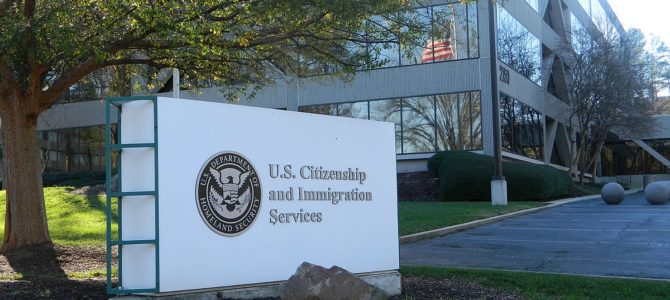
In an unprecedented move, Cameron County, Texas state court judge Sheila Garcia Bence ordered an investigation into the federal government’s custody and care of every minor illegal alien the Office of Refugee Resettlement is detaining at the Casa Padre Detention Facility in Brownsville, Texas.
Casa Padre is one of the many custodial shelters located throughout the United States that the federal government contracts with to provide housing and care for abandoned and runaway foreign minors. While the ORR attempts to find appropriate sponsors for the children—typically relatives already living in the United States—the children remain in the ORR’s legal custody and are housed in such shelters.
But now a state probate court judge has appointed a private attorney, Hailey A. Hobren, to serve as a court-appointed investigator to look into the conditions under which the federal government is holding the children. Judge Bence also named six Texas attorneys to serve as guardian ad litems for the children and a seventh lawyer to represent the minors as their attorney ad litem. This state court order, in effect, puts the state and private attorneys in charge of investigating the federal government’s care for the unaccompanied minors and for assessing the children’s well-being.
On Friday, following the state court’s guardianship order, the ORR filed a notice of removal with a federal district court, seeking to remove the case from the state court system and into the federal court system. In its notice of removal, ORR explained that Casa Padre is a custodial residence for minors operated on behalf of ORR, and that “[t]he minors at Casa Padre are in federal custody.” Accordingly, the “ORR is responsible under federal law for their care, for consideration of their interests, and for placement decisions concerning their federal custody.”
The state probate court’s order interferes with the federal government’s duties to care for the minors, the Department of Justice argued, and improperly requires the United States to allow third parties to demand entry into federal facilities without complying with federal rules and policies. Unlike earlier cases, in which attorneys sought access to individually identified pregnant minors who were seeking abortions, the state court order in this case named the attorneys guardians ad litem over all minors detained at Casa Padre and directed the private attorneys to assess the conditions and well-being of each child.
The filing of a removal notice divests the state court of jurisdiction over the case, meaning Hobren’s state investigation into the federal contractor caring for the minors on behalf of ORR is on hold for now. But for how long is another question.
Earlier this year, after a state court appointed a guardian ad litem and attorney ad litem for an unaccompanied minor purportedly seeking an abortion, ORR attempted to remove the case, Doe v. ORR, to a federal court. But a federal trial judge sent the case back to the state court system, concluding guardianship issues were within the province of state court judges.
ORR immediately appealed to the Fifth Circuit Court of Appeals, which, in an internally inconsistent opinion, held that the question of guardianship was best left to the state court, but nonetheless retained jurisidiction over the case to determine whether the unnamed plaintiff in that case desired to have an abortion. After the minor met with the federal judge and assured him that she did not want an abortion, the case was dismissed.
This case, however, does not offer the Fifth Circuit an easy out: The federal appellate court will be forced to confront the “clash of power” between the authority of a state court in matters of child welfare and the federal government’s authority over matters of immigration and its statutory duty to care for the illegal alien minors. Because this case does not involve abortion, the court is unlikely to expedite proceedings or ignore controlling precedent, as is often done when so-called reproductive rights are at issue.
While there may be no easy out, there is an easy answer—found in the Supremacy Clause. Fifth Circuit appellate court judge Edith Jones made that point clear in her dissent in the Doe v. ORR case, writing “there is simply no precedent in this court for requiring a federally mandated legal guardian of unaccompanied alien children to subserve state-appointed lawyers and for this court to ignore the constitutional and statutory relationships created by the federal government’s control over immigration.” “The Supremacy Clause is turned upside down to hold or imply otherwise,” Jones rightly concluded.









